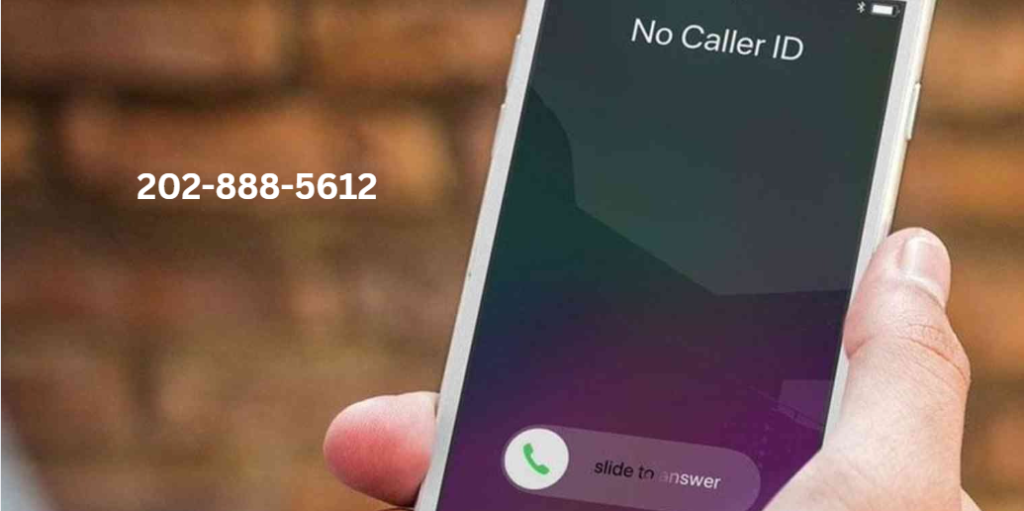Contents
Introduction to (202) 888-5612
In recent times, (202) 888-5612 has gained notoriety as a Medicare robocall number, inundating phone lines across the United States. This article aims to provide a comprehensive understanding of the phenomenon behind (202) 888-5612, going beyond existing information to offer insights, analyses, and interpretations that shed light on its implications and impact.
Understanding the (202) 888-5612 Medicare Robocall
(202) 888-5612 represents a specific instance of robocalling, a practice where automated phone systems deliver pre-recorded messages. In the context of Medicare, these calls often target senior citizens, promising healthcare benefits or services in exchange for personal information.
The prevalence of such calls underscores broader issues related to privacy, fraud prevention, and consumer protection.
Origins and Tactics
The proliferation of (202) 888-5612 and similar robocalls stems from sophisticated tactics used by scammers to exploit vulnerabilities in communication networks.
By impersonating legitimate entities like Medicare or healthcare providers, perpetrators aim to deceive unsuspecting recipients into divulging sensitive data or financial details.
Impact on Consumers
The impact of (202) 888-5612 extends beyond mere annoyance, posing significant risks to consumer privacy and financial security.
Victims of Medicare robocall scams may experience identity theft, unauthorized charges, or compromised healthcare coverage, highlighting the urgent need for awareness and vigilance among the public.
Analyzing the Phenomenon
Technological Underpinnings
The operation of (202) 888-5612 and similar robocall schemes relies on automated dialing systems and voice-over-IP (VoIP) technology, enabling mass distribution of fraudulent messages at minimal cost.
Advances in telecommunications have facilitated the scalability and persistence of such fraudulent activities, challenging regulatory efforts and enforcement measures.
Regulatory Landscape
Efforts to combat Medicare robocalls like (202) 888-5612 involve regulatory bodies, telecommunications providers, and law enforcement agencies collaborating to implement stricter regulations, enhanced call-blocking technologies, and enforcement actions against perpetrators. However, the adaptability of scammers necessitates ongoing adaptation and innovation in regulatory frameworks.
Responding to (202) 888-5612: Mitigation Strategies
Consumer Education
Empowering consumers with knowledge about (202) 888-5612 and similar robocall tactics is essential for mitigating risks. Educational initiatives focus on recognizing red flags, verifying caller identities, and adopting proactive measures such as call-blocking apps or services to reduce exposure to fraudulent communications.
Legal and Technological Solutions
Legislative efforts seek to strengthen penalties for robocall violations and enhance regulatory oversight of telecommunications practices.
Concurrently, advancements in artificial intelligence (AI) and machine learning enable the development of predictive algorithms capable of identifying and preemptively blocking suspicious calls like (202) 888-5612.
FAQs About (202) 888-5612
What should I do if I receive a call from (202) 888-5612?
If you receive a call from (202) 888-5612 or any suspicious number claiming to be from Medicare or offering healthcare services, refrain from disclosing personal information. Hang up immediately and report the call to relevant authorities, such as the Federal Trade Commission (FTC) or Medicare’s fraud hotline.
How can I protect myself from Medicare robocall scams?
To protect yourself from Medicare robocall scams like (202) 888-5612, register your phone number on the National Do Not Call Registry, install reputable call-blocking apps, and educate yourself about common scam tactics. Be cautious of unsolicited calls requesting sensitive information and verify the legitimacy of callers before providing any personal details.
Are there legal consequences for Medicare robocall scammers?
Yes, perpetrators of Medicare robocall scams face legal consequences, including fines, imprisonment, and civil penalties under federal and state laws. Law enforcement agencies actively investigate and prosecute individuals and organizations involved in fraudulent robocalling activities targeting Medicare beneficiaries.
Conclusion: Addressing the Threat of (202) 888-5612
(202) 888-5612 exemplifies the pervasive threat posed by Medicare robocall scams, necessitating collective efforts from stakeholders to safeguard consumer interests and uphold trust in telecommunications.
By raising awareness, enhancing regulatory frameworks, and promoting technological innovation, society can mitigate the impact of robocall fraud and protect vulnerable populations. Stay vigilant, stay informed, and stay protected against the persistent menace of (202) 888-5612 and similar fraudulent schemes.



